Wondering how to help someone in drug recovery? Supporting someone in recovery is often a challenging task. It is an emotional journey that requires patience, understanding, and compassion. It is also one of the most meaningful ways you can contribute to their healing process.
If a loved one is struggling with addiction, an inpatient addiction treatment program can save their life. There are addiction treatment centers and drug rehab programs near you that offer professional, evidence-based care. Everyone deserves to be happy and healthy.
How to Help Someone in Recovery
Offering support to someone in recovery is not about solving their issues but rather providing them with the strength and encouragement to overcome their challenges. Here are some strategies on how to help someone in drug recovery:
Educate Yourself
Understanding the nature of addiction and the recovery process is crucial. It enables you to empathize with your loved one’s struggle and provide informed support.
Listen Actively
Encourage your loved one to express their feelings and thoughts. Listening without judgment can provide them with a sense of comfort and understanding.
Encourage Healthy Habits
Promote a balanced lifestyle that includes regular exercise, a nutritious diet, and adequate rest. These habits can significantly enhance their mental and physical well-being during recovery.
Join a Support Group
Support groups provide a safe and non-judgmental space for individuals in recovery to share their experiences and connect with others who understand what they are going through.
Be Patient and Understanding
Recovery is an ongoing process, and there may be setbacks. It is important to be patient, supportive, and understanding during these times.
Be There for Them
Simply being there for your loved one, whether it is through a phone call or spending time together, can provide immense comfort and support. Let them know that they are not alone in their journey.
Remember, you cannot do it alone. They may require professional help, and that is okay. Inpatient addiction treatment programs offer a safe and structured environment for individuals to recover from addiction.
Tips to Support Someone in Recovery
While every individual’s recovery journey is unique, there are general tips that can guide you in supporting someone in recovery:
- Maintain patience
- Establish boundaries
- Celebrate progress
- Avoid substance use
- Educate others on addiction
- Seek support for yourself
- Show unconditional love and support
- Encourage healthy coping strategies
- Celebrate milestones together
Supporting someone in recovery is a meaningful and necessary role. Your presence, understanding, and encouragement can make all the difference in your loved one’s journey toward lasting sobriety.
Benefits of an Inpatient Addiction Treatment Program
Inpatient addiction treatment programs offer a structured and supportive environment for recovery. They provide several benefits, including:
Professional Support
Inpatient programs have a team of professionals providing round-the-clock care and support.
Therapeutic Services
These programs offer various therapeutic services, such as individual therapy, group counseling, and holistic treatments.
Peer Support
Being around others also in recovery can provide encouragement, understanding, and shared experiences.
Encourage your loved one by reminding them that seeking help is not a sign of weakness but strength. Consider the benefits of an inpatient addiction treatment program, which offers professional support, therapeutic services, and peer support. Finding the right addiction treatment center can provide your loved one with the professional help they need.
Find an Addiction Treatment Center Near You Today
Finding the right addiction treatment center is a crucial step toward recovery. Look for a center that offers comprehensive, evidence-based treatment tailored to your loved one’s unique needs.
It is important to remember that supporting a loved one through their recovery journey is not easy. Still, your understanding, patience, and encouragement can make a significant difference in their healing process. By educating yourself, actively listening, encouraging healthy habits, maintaining patience, establishing boundaries, celebrating progress, and avoiding substance use, you can provide the support they need.

